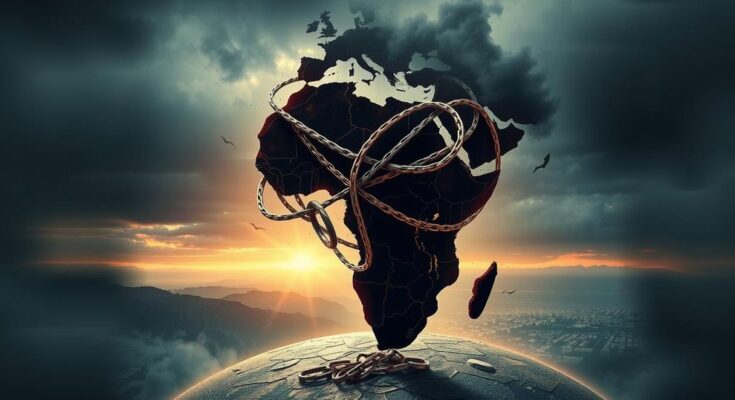The article outlines Rwanda’s strategic manipulation and destabilization of the Democratic Republic of the Congo (DRC) since 1996, citing its influence over Congolese leadership, support for rebel groups, and exploitation of natural resources. Despite Rwanda’s portrayal as a stabilizing force, its actions have perpetuated conflict and chaos, necessitating a re-evaluation of international support and genuine partnerships to aid in Congo’s recovery and stability.
The ongoing conflict in the eastern Democratic Republic of the Congo (DRC) has resulted in millions of deaths since 1996. Author Jeffrey Smith argues that this violence is not merely a product of regional instability or ethnic strife, but rather a strategic effort by Rwanda to weaken its resource-rich neighbor. Rwandan President Paul Kagame has constructed a façade of stability while actively destabilizing Congo. This strategy includes exerting influence over Congo’s political landscape.
Following Rwanda’s intervention in Congo, it has effectively controlled Congolese leadership since Laurent Kabila’s rise to power in 1997. Kabila’s assassination in 2001 cleared the way for his son Joseph Kabila, who reinstated ties with Rwanda. This influence was solidified in 2018 when Rwanda helped legitimize a backroom deal denying Martin Fayulu’s electoral victory in favor of Felix Tshisekedi, demonstrating Rwanda’s overarching influence.
Rwanda’s involvement in the DRC extends to supporting armed groups, notably the March 23 Movement (M23), which has engaged in conflict and captured key territories such as Goma. Despite denying ties with these rebels, evidence suggests that Rwandan military support is substantial. The pattern illustrates a cyclical situation where rebel groups infiltrate, destabilize, and later re-emerge under new guises.
Kagame’s aggressive strategy is ostensibly justified by allegations that eastern Congo harbors the Democratic Forces for the Liberation of Rwanda (FDLR), an armed group associated with the 1994 genocide. However, this narrative obscures Rwanda’s true interests in controlling Congo’s vast mineral resources, including cobalt and gold, crucial for the global tech industry. Recent reports indicate that the majority of Congo’s gold exports are illegally funneled through Rwanda.
International powers have largely overlooked Rwanda’s actions, as evidenced by a dramatic increase in foreign aid over the past two decades. This aid has not only fortified Kagame’s grip on power but has also enabled his regime to operate unchecked, escalating tensions in the region. As Congo strives for military reform and legitimate governance, external interventions often face sabotage from Rwanda-backed influences.
The international community’s response to Rwanda’s aggressive tactics has been inadequate. Rwanda has leveraged the West’s guilt over the 1994 genocide to deflect criticism while positioning itself as a key partner in African peacekeeping efforts. The situation in eastern Congo exemplifies the need for genuine international partnerships that prioritize stability over enabling Rwanda’s regime.
The Congolese populace deserves the opportunity to establish strong institutions without interference. Recognizing Rwanda’s role in perpetuating chaos in Congo is essential for achieving lasting peace in Central Africa. As nations depend on Congo’s resources, including minerals essential for technology, global security and progress hinge on the region’s stability.
Rwanda’s actions in the Democratic Republic of the Congo reflect a deliberate strategy to undermine its neighbor while exploiting its resources. Despite presenting itself as a stabilizing force, the Rwandan regime has wielded significant influence over Congolese leadership and sustained conflicts that perpetuate chaos. The international community must reassess its support for Rwanda and prioritize sustainable partnerships that foster stability, allowing the Congolese people to build their own future free from external manipulation.
Original Source: foreignpolicy.com




